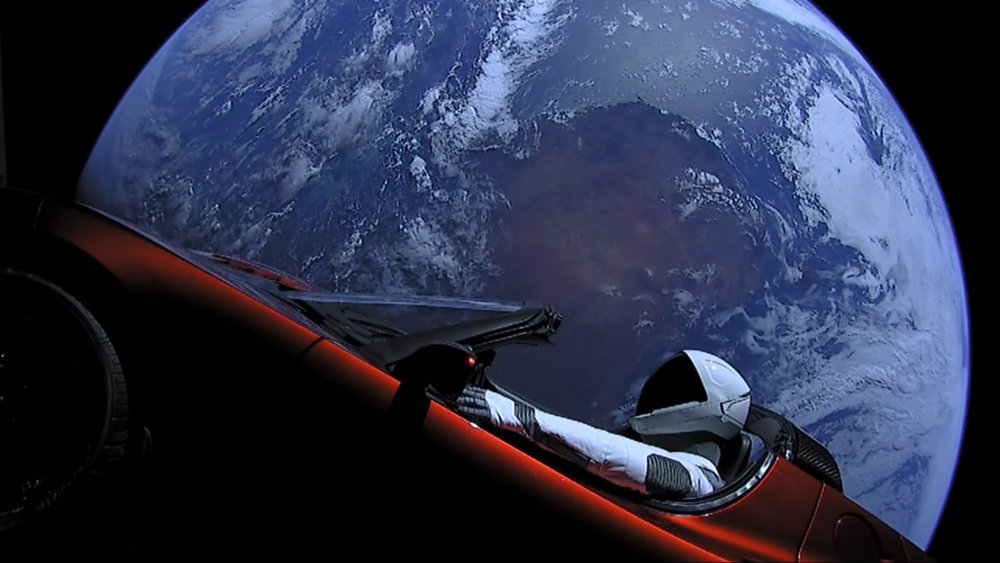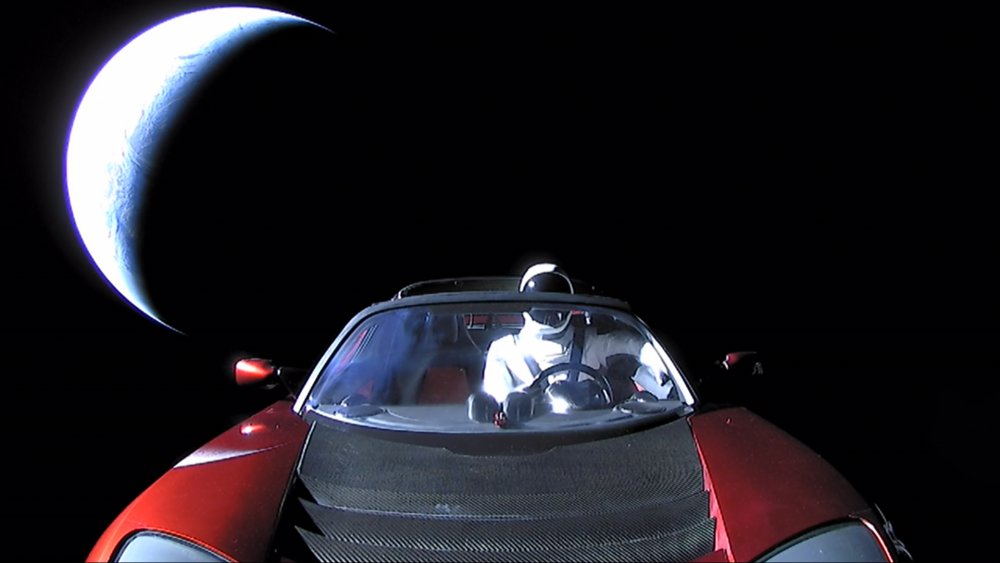The Real Reason A Tesla Was Launched Into Space
Thanks in large part to Brad Pitt, society bumped up their Latin vocabulary last year. Added to "et cetera" and "in vino veritas," everyone now knows "ad astra," the title of Pitt's movie about space travel, meaning "to the stars." In this new world, space travel, once an endeavor so massive it was reserved to the expertise and deep pockets of governments, is now (every once in a while) a corporate endeavor, with announcements of projects like civilian space tourism.
The first, Dennis Tito, took a ride in 2001 to the International Space Station via a Soyuz space capsule, to the tune of $20 million, says Wired. These days, Jeff Bezos is putting his Amazon money where his mouth is, developing Blue Origin with an eventual goal of returning to the moon. Richard Branson offers Virgin Galactic, "the world's first commercial spaceline." And, of course, Elon Musk, the man behind those very high-end and oh-so expensive electric cars, also runs the private spaceflight company SpaceX.
So it's his car, and it's his rocket, so he can do what he wants, right?
Tesla in Space
In what's viewed variously as "whimsy" and/or "marketing," in February of 2018 a SpaceX Falcon Heavy rocket ws launched into space, with a payload consisting of a mannequin nicknamed Starman, wearing a SpaceX space suit, strapped in behind the wheel of a cherry red Tesla roadster convertible. In a very nice nod to Douglas Adams' The Hitchhiker's Guide to the Galaxy, the car's dashboard displays the words, "Don't panic." The vehicle was launched into orbit where, if all goes as predicted (though it might not), it will continue in an orbit between Earth and Mars, making a solar circuit every 19 months, reports CNN. Marco Langbroek, who tracks asteroids, has stated that the car's path is too "ill defined" to make hard-and-firm forecasts of its travels. Since it was a test launch, the company needed a dummy payload. Musk himself said he wanted it to be silly.
As the Atlantic points out, it's also a terrific piece of marketing for Musk. "The Tesla, in addition to adding some pizzazz to an otherwise technically complicated test flight, signals another milestone in a shifting spaceflight industry," wrote Marina Koren. Anything else, Musk said, would have been "boring." Livening things up, perhaps, Musk also added that, "There's a tiny chance that it will hit Mars. Extremely tiny."
It's a new world of space flight — and even exploration — privately funded. Ad astra.

